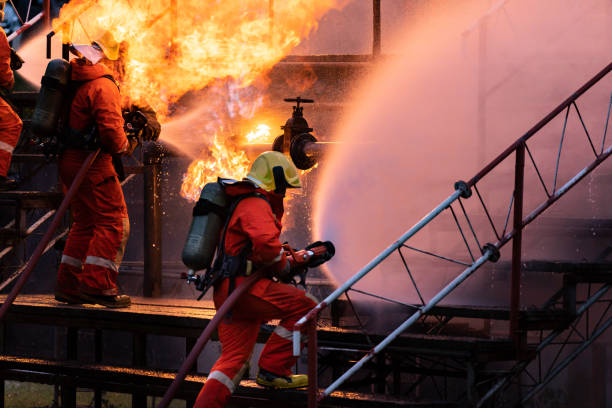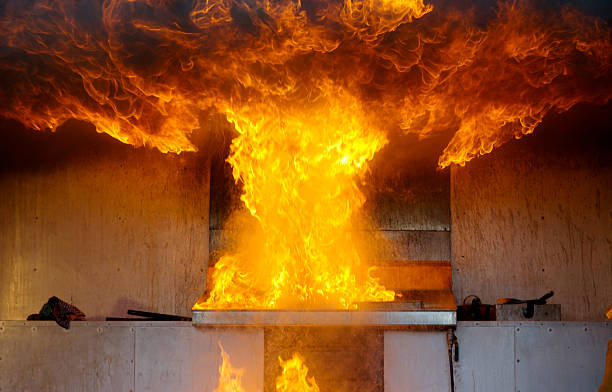In the bustling city of Nairobi, Kenya, where the heartbeat of the nation echoes through its streets, a catastrophic event unfolded at the Embakasi district. A gas station, licensed under questionable circumstances, erupted into a fiery inferno, casting a dark shadow over the community. As the smoke billowed into the sky, so did the questions surrounding the regulatory oversights that led to this tragedy.
Kenya’s President, determined to address the crisis head-on, swiftly convened an emergency meeting with top government officials. The gravity of the situation demanded accountability, and the President, known for his no-nonsense approach to governance, directed a thorough vestigation into the licensing process of the ill-fated gas station.
In a somber address to the nation, the President expressed his deep concern for the lives lost and the impact on the affected community. He vowed to bring justice to those responsible for the lapses in oversight that allowed such a disaster to occur. The directive was clear – identify and arrest the government officials involved in the licensing of the gas station.
The investigative process was meticulous, involving a multidisciplinary team of experts in safety regulations, urban planning, and law enforcement. The President emphasized the need for transparency and urgency, understanding that the trust of the people was at stake.
As the investigation unfolded, a web of corruption and negligence began to surface. It was revealed that the gas station had obtained its license through fraudulent means, bypassing essential safety assessments and inspections. The implicated government officials were found to have accepted bribes and turned a blind eye to glaring violations.
The President, unwavering in his commitment to justice, took decisive action. Arrest warrants were issued for the implicated officials, signaling a new era of accountability in Kenyan governance. The nation watched as law enforcement agencies swiftly apprehended those responsible, their faces reflecting a mix of guilt and remorse.
The court proceedings that followed were a testament to the President’s determination to eradicate corruption and prioritize the safety of the citizens. The legal system, bolstered by the weight of public sentiment, worked tirelessly to ensure a fair trial. The accused officials, once powerful in their positions, now found themselves facing the consequences of their actions.
The trial exposed not only the individuals directly involved but also shed light on systemic issues within the regulatory framework. The President seized this opportunity to implement sweeping reforms, overhauling the licensing process and reinforcing safety protocols for businesses dealing with hazardous materials.
Simultaneously, the affected community in Embakasi received much-needed support. The government allocated resources for immediate relief efforts, providing shelter, medical assistance, and counseling for those traumatized by the tragic incident. The President visited the site, offering condolences to the families affected and assuring them of the government’s commitment to preventing such disasters in the future.
As the legal proceedings reached their conclusion, the message sent by the President was clear – no one was above the law. The convicted officials faced severe penalties, serving as a deterrent for others who might consider engaging in corrupt practices.
The gas station tragedy, initially a symbol of negligence and corruption, became a turning point in Kenya’s governance. The President’s decisive actions not only brought justice to the victims but also ushered in a new era of accountability, transparency, and commitment to the well-being of the nation.
In the aftermath of the crisis, the government worked tirelessly to rebuild trust with its citizens. Stricter regulations and enhanced oversight became the norm, ensuring that such a tragedy would never be repeated. The people of Kenya, though scarred by the events in Embakasi, found solace in the knowledge that their leaders were committed to safeguarding their lives and livelihoods.


